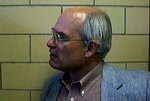Student engagement is an elusive concept. From a faculty member's point of view, student engagement might be that all-to-rare student who asks such incisive questions. From a student's point of view, engagement might be working on a big project, doing research, or studying overseas.
Doing those things, what Nessie calls the "high-impact" activities of which big student projects, studying overseas, and conducting research are examples, now have empirical support. (Other high-impact activities include living in learning communities or writing for the school newspaper.) "Nessie" or the National Survey of Student Engagement is an 8-year old survey administered by over 1000 colleges and universities to over 300,000 freshman and seniors. The entire 2007 Annual Report can be downloaded as a PDF file here.
In the latest Nessie, undergraduate research with faculty was an important factor in improving student engagement. More specifically, conducting an undergraduate thesis (based upon empirical data collection) improved critical thinking. Field research and placements were even more valuable. When students have to work in real situations, interact with others outside of the university, and for longer periods the beneficial effects of such close faculty-student interactions become greater.
Another group deeply involved in student engagement is the American Association of Colleges and Universities (AACU). They fund programs related to improving college education, broadly defined.
Obviously, we are big fans of undergraduate research with faculty. So, one way to improve your time in college is to seek out a sympathetic faculty member and work together on a research project.
Subscribe to:
Post Comments (Atom)



No comments:
Post a Comment